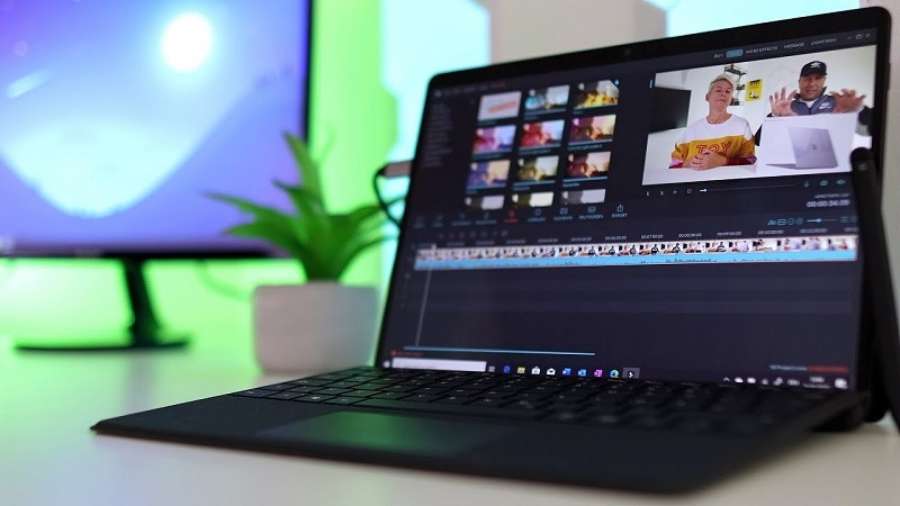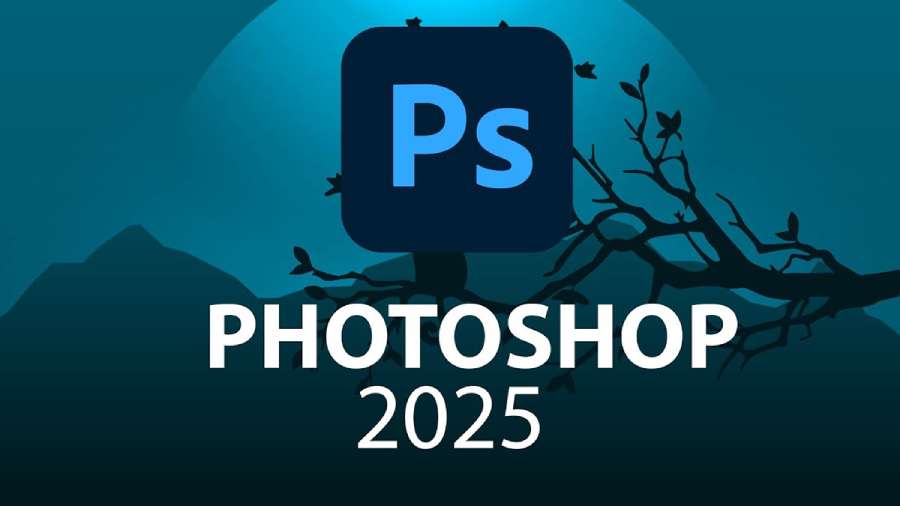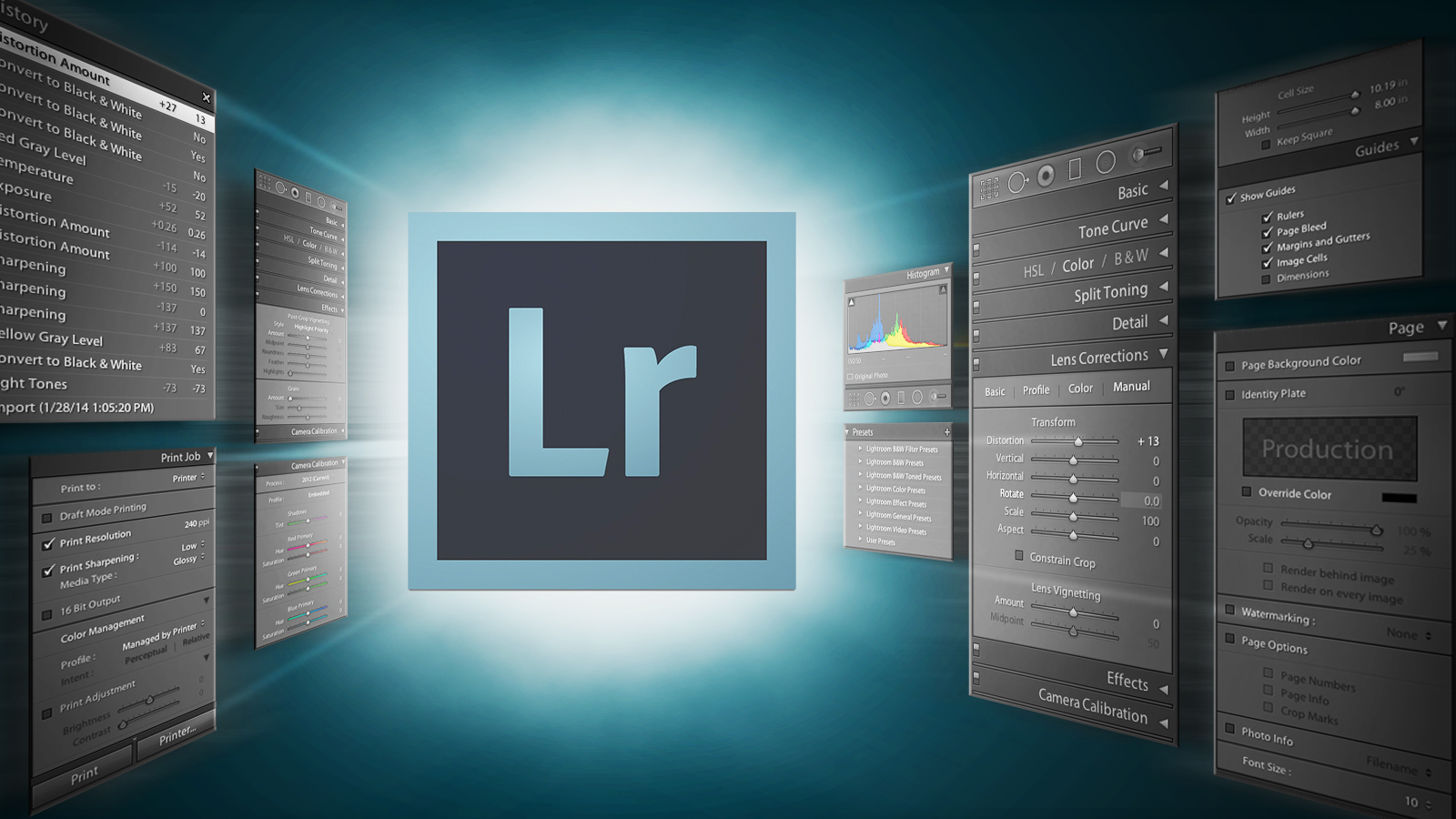Best Selling Products
Wacom and iPad: Which Will Be the Better Tool for Learning Digital Painting?
Nội dung
- 1. Wacom – Professional Tool for Digital Artists
- 2. iPad – The Versatile Device For Mobile Creativity
- 3. Should You Choose Wacom Or iPad When Learning Digital Painting?
- 4. Things to consider when choosing Wacom or iPad when learning Digital Painting
- 4.1. Usage Requirements
- 4.2. Budget
- 4.3. Support Software
- 4.4. Technical Features
- 4.5. Extended Features
- 4.6. Durability and Warranty Service
"Should I choose to buy a Wacom or an iPad?" is one of the most common questions among beginners and even experienced artists. Both Wacom and iPad have their own advantages and disadvantages. Each device is suitable for different drawing styles, creative needs, and budgets.
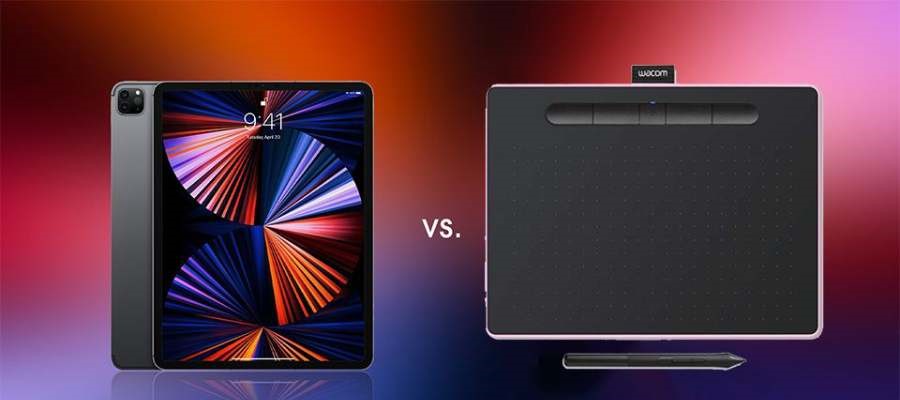
When it comes to digital painting, the question “Should I buy a Wacom or an iPad?” is one of the most common questions asked by beginners and experienced artists alike. Both Wacom and iPad have their own pros and cons, and each device is suited to different drawing styles, creative needs, and budgets. Let’s take a closer look at each product to help you make the right choice.
@old
1. Wacom – Professional Tool for Digital Artists
Wacom is a long-standing brand in the field of digital drawing tablets, known for its precision and high sensitivity, bringing a natural drawing feeling to users. Popular product lines such as Wacom Intuos and Wacom Cintiq both provide a realistic drawing experience thanks to pressure-sensitive pen technology and accurate color display. Some of the advantages of using Wacom for digital painting include:
- High sensitivity and realistic drawing feeling: Wacom's pen is capable of sensing thousands of different pressure levels, allowing you to adjust the thickness of the strokes precisely. This is especially useful for those who love detailed drawing techniques.
- Professional and versatile options: Wacom offers a range of products suitable for both beginners and professional artists. The Cintiq line allows you to draw directly on the screen, while the Intuos is more affordable and requires a computer connection.
- Customization and compatibility with specialized software: Wacom supports professional graphics software such as Adobe Photoshop, Illustrator, and Corel Painter. Customizable shortcuts and control buttons on the drawing board help save time and improve work efficiency.
However, Wacom is not a standalone device and usually requires connection to a computer, which can be inconvenient if you want to draw in multiple places or need a lot of flexibility.
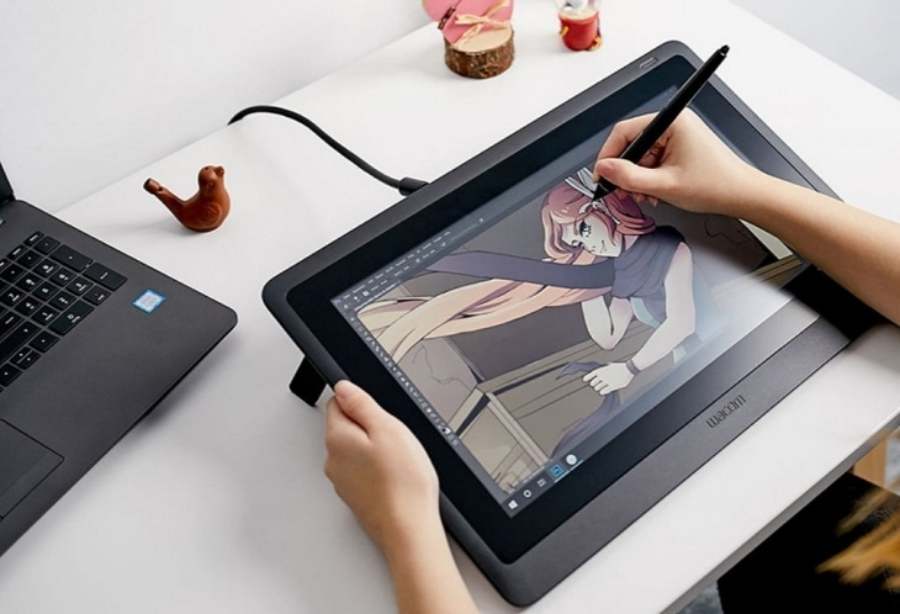
@old
2. iPad – The Versatile Device For Mobile Creativity
iPads, especially the iPad Pro and iPad Air with Apple Pencil support, have become popular choices for digital painting enthusiasts. iPads stand out for their powerful processing capabilities, sharp screens, and high portability. Some reasons to choose an iPad when learning digital painting include:
- High flexibility and mobility: iPad is an "all-in-one" device that can be carried anywhere, anytime and does not need to be connected to a computer. This is very useful for people who travel frequently or like to work in different spaces.
- Rich application ecosystem: The App Store has many drawing applications such as Procreate, Adobe Fresco, and Clip Studio Paint, which are easy to use and support both beginners and professional artists. In particular, Procreate is a popular and powerful drawing application, supporting many tools and effects that digital painting artists appreciate.
- High-quality display: iPad Pro lines have Retina displays with sharp resolution and colors, allowing you to draw in detail and easily observe each color gamut accurately.
The downside of the iPad may be that it doesn't have the same level of customization and precision as the Wacom. Additionally, the Apple Pencil may not have the same pressure sensitivity as the Wacom's for precise strokes.
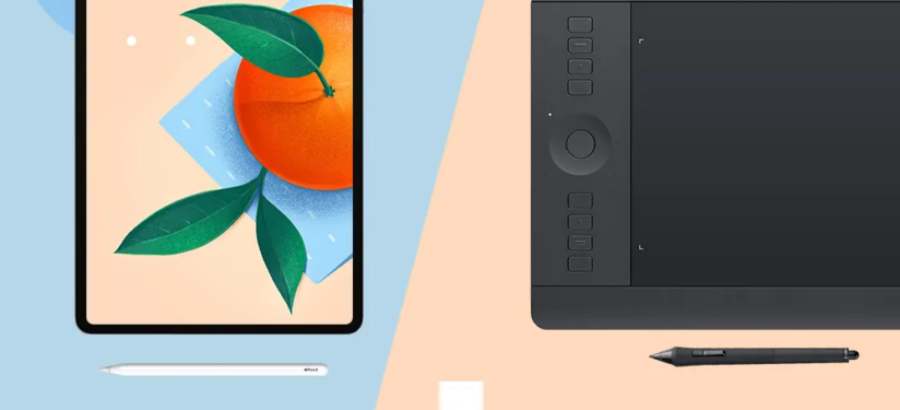
3. Should You Choose Wacom Or iPad When Learning Digital Painting?
The choice between Wacom and iPad depends largely on your needs, drawing style, and budget. If you are a beginner and want a device that is convenient, easy to use everywhere, and suitable for many different purposes such as drawing, working, and playing, then the iPad with Apple Pencil is a reasonable choice. It not only provides a flexible drawing experience but also a good device for entertainment and work.
However, if you are experienced and want a professional tool, high precision, support advanced features for digital painting and often work in a fixed space, Wacom is a choice worth considering. In particular, Wacom Intuos and Cintiq are suitable for artists who want to focus on graphic work and need a dedicated tool to draw complex details.
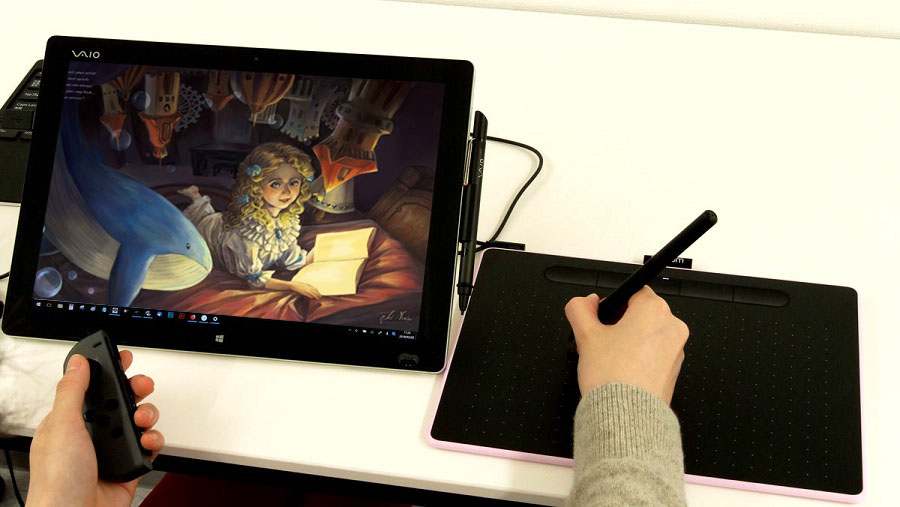
4. Things to consider when choosing Wacom or iPad when learning Digital Painting
When choosing between a Wacom or iPad for digital painting, there are a few important considerations to make sure the device fits your needs, drawing style, and budget. Here are some things to keep in mind when choosing:
4.1. Usage Requirements
Wacom: Good if you typically work in a fixed location, such as a studio or desk. It's suitable if you're focusing on developing advanced drawing skills or want to work professionally in fields like illustration, concept art, or graphic design.
iPad: If you need a versatile device for drawing, studying, working, and entertainment, the iPad is the more flexible choice. Better for people who need high mobility, want to draw anytime, anywhere without connecting to a computer
4.2. Budget
Wacom: The Wacom Intuos line is affordable (good for beginners), while the Cintiq or MobileStudio lines are often more expensive due to the high-quality built-in displays. However, Wacom requires you to have a powerful enough computer to use (for non-display tablets like the Intuos).
iPad: The iPad Pro with Apple Pencil is a big investment given its high price, but it offers great versatility and performance. The base iPad or iPad Air are more affordable but still great for learning digital painting.
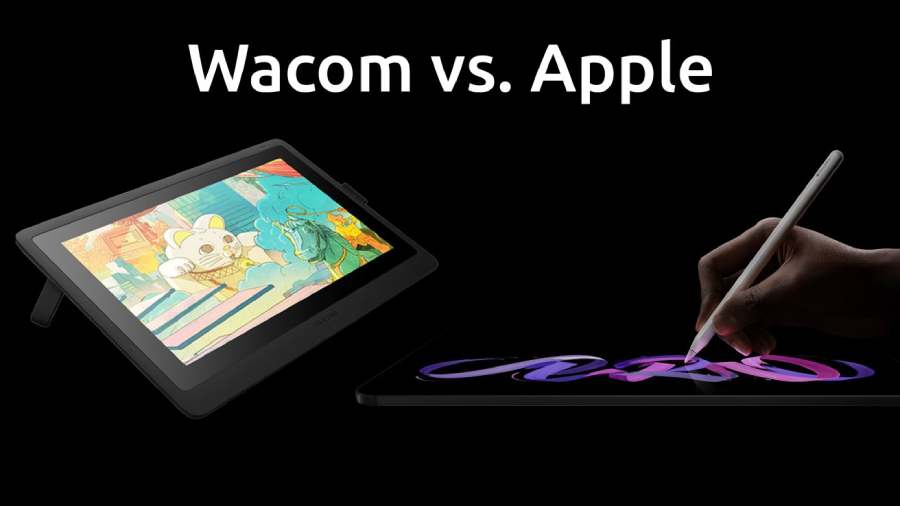
4.3. Support Software
Wacom: Compatible with professional software such as Adobe Photoshop, Illustrator, Corel Painter, and Clip Studio Paint. These software often require a good computer configuration to run smoothly.
iPad: Use drawing apps like Procreate, Adobe Fresco, or Clip Studio Paint, which have intuitive interfaces, are easy to learn, and are optimized for touchscreens. Some apps like Procreate are especially good for beginners.
4.4. Technical Features
Wacom: Wacom pens have thousands of levels of pressure sensitivity, providing superior precision, especially suitable for professionals. The buttons on the Wacom drawing tablet help you operate quickly, improving work efficiency. Wacom has many drawing tablet sizes to choose from, from compact to large screens, suitable for any workspace.
iPad: integrates both hardware and software into a single, portable device. The Apple Pencil is highly sensitive and supports tilt for special effects, but the pressure sensitivity may not be as precise as the Wacom stylus. The iPad Pro line has Retina or Liquid Retina displays with good color accuracy, ideal for artists.
4.5. Extended Features
Wacom: Customizable brushes, keyboard shortcuts, and settings to suit your needs. Many Wacom models include high-resolution, color-accurate displays (like the Cintiq), making them ideal for professional work.
iPad: Supports additional accessories like the Magic Keyboard, which expands its capabilities beyond digital drawing. Compatible with the Apple ecosystem, allowing for quick file sharing between devices like a MacBook or iPhone.
@old
4.6. Durability and Warranty Service
Wacom: Wacom tablets are known for their durability, low failure rates, and good after-sales support. However, the stylus may need replacing with prolonged use.
iPad: The iPad is also durable, but the touchscreen is prone to scratches if not protected properly. Also, the Apple Pencil may need charging more often than the Wacom stylus.
Conclusion
Both Wacom and iPad have outstanding advantages in supporting digital painting, and each product offers a different experience. For those new to drawing or who want flexibility and mobility, the iPad with Apple Pencil is a great choice. Meanwhile, Wacom will be the optimal choice for those who want to focus on quality and professionalism in every stroke. Contact Sadeign for more information.









































